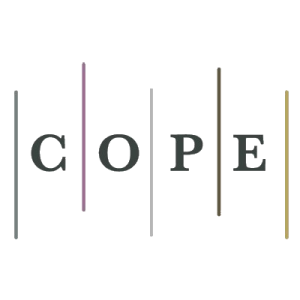The Peer-review Process
Once you've submitted your paper to a journal, it'll then be sent out for assessment by independent experts in the field. These reviewers, also sometimes called ‘referees’, are asked to judge the validity, significance, and originality of your work ensuring every article you publish is as good as it can be.
Double-blind peer review
Horizon uses a double-blind review process where the reviewers don’t know that you are the author of the article. And you don’t know who the reviewers are either. Double-blind review is particularly common in the humanities and social sciences.
Many researchers prefer double-blind review because they believe it will give their paper a fairer chance than single-blind. It can avoid the risk of a paper suffering from the unintended bias of reviewers who know the seniority, gender, or nationality of a paper’s author.
However, even if you’ve anonymized your paper the reviewers may not be able to avoid discerning your identity, especially if you work in a very specialized field. They may, for example, have heard you present the same ideas at a conference or recognize your writing style.
Conducting a review
Initial steps: Read the manuscript, supplementary data files and ancillary material thoroughly (e.g., reviewer instructions, required ethics and policy statements), getting back to the journal if anything is not clear and requesting any missing or incomplete items you need.
Confidentiality: Respect the confidentiality of the peer review process and refrain from using information obtained during the peer review process for your own or another’s advantage, or to disadvantage or discredit others. Do not involve anyone else in the review of a manuscript (including early career researchers you are mentoring), without first obtaining permission from the journal. The names of any individuals who have helped with the review should be included so that they are associated with the manuscript in the journal’s records and can also receive due recognition for their efforts.
Bias and competing interests: It is important to remain unbiased by considerations related to the nationality, religious or political beliefs, gender or other characteristics of the authors, origins of a manuscript or by commercial considerations. If you discover a competing interest that might prevent you from providing a fair and unbiased review, notify the journal and seek advice. While waiting for a response, refrain from looking at the manuscript and associated material in case the request to review is rescinded. Similarly, notify the journal as soon as possible if you find you do not have the necessary expertise to assess the relevant aspects of a manuscript so as not to unduly delay the review process. In the case of double-blind review, if you suspect the identity of the author(s) notify the journal if this knowledge raises any potential competing or conflict of interest.
Suspicion of ethics violations: If you come across any irregularities with respect to research and publication ethics do let the journal know. For example, you may have concerns that misconduct occurred during either the research or the writing and submission of the manuscript, or you may notice substantial similarity between the manuscript and a concurrent submission to another journal or a published article. In the case of these or any other ethical concerns, contact the editor directly and do not attempt to investigate on your own. It is appropriate to cooperate, in confidence, with the journal, but not to personally investigate further unless the journal asks for additional information or advice.



